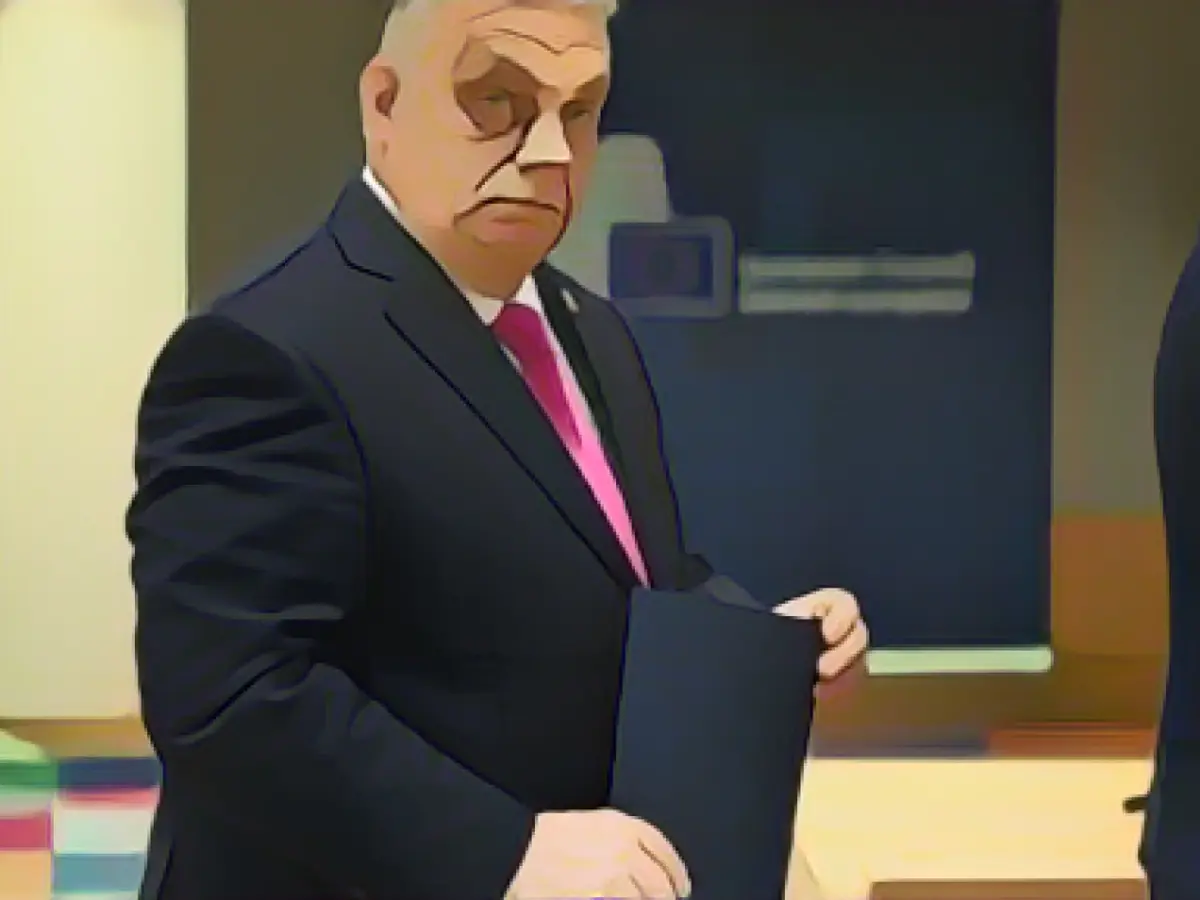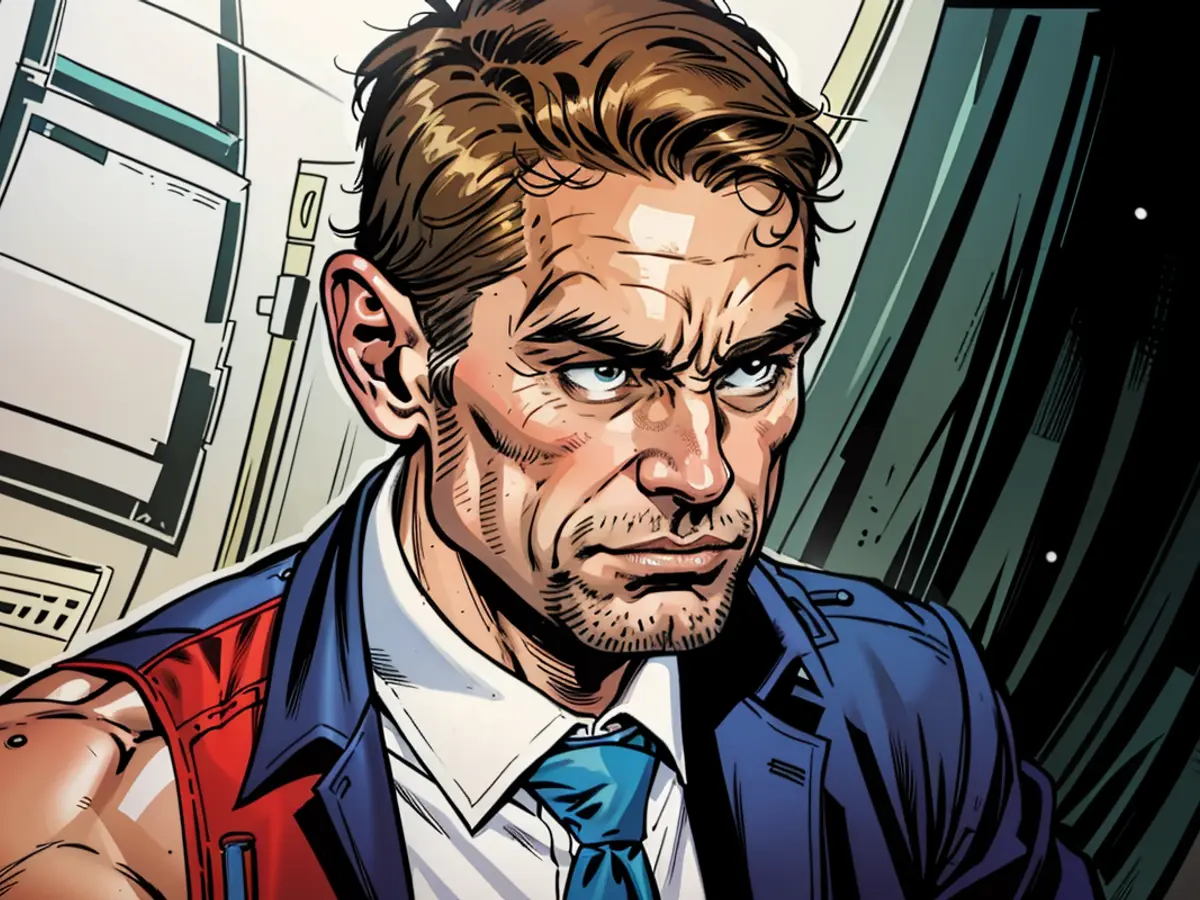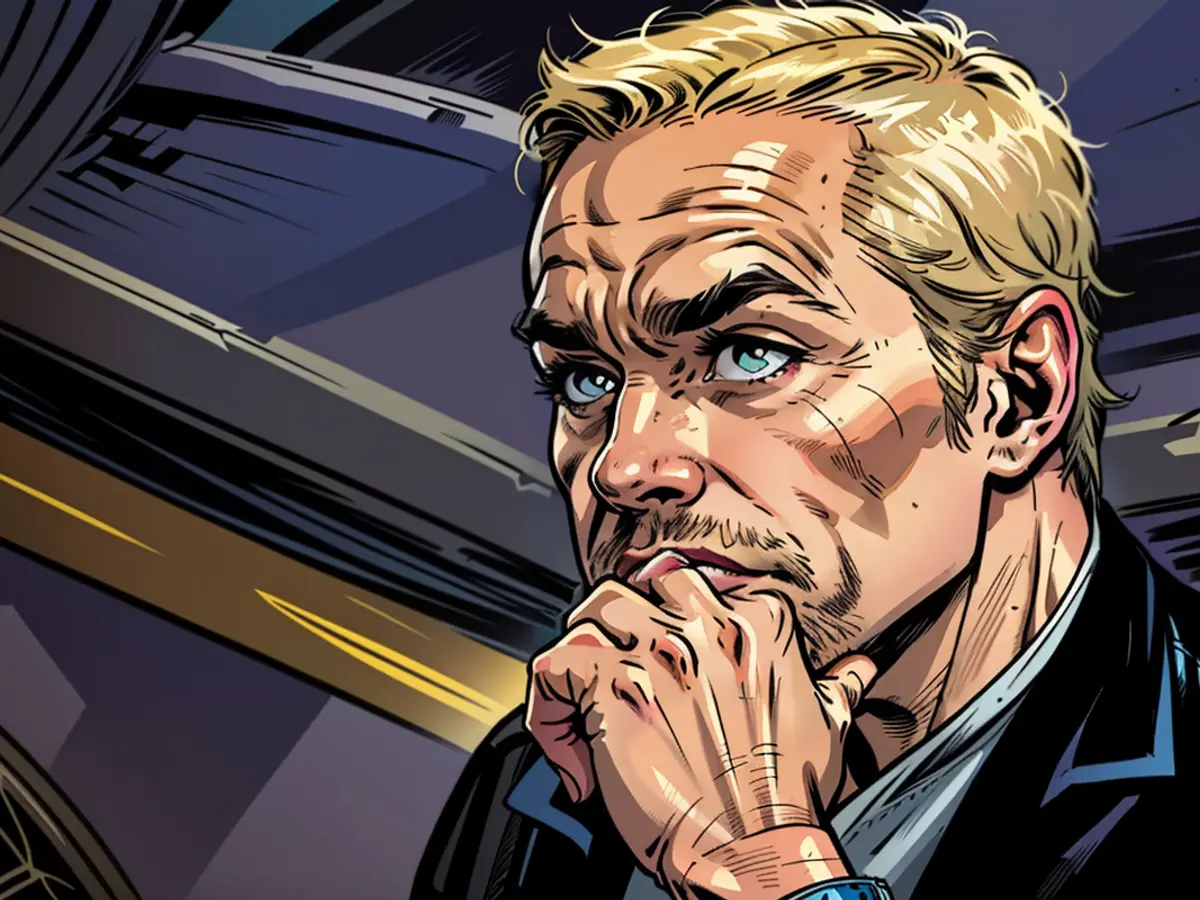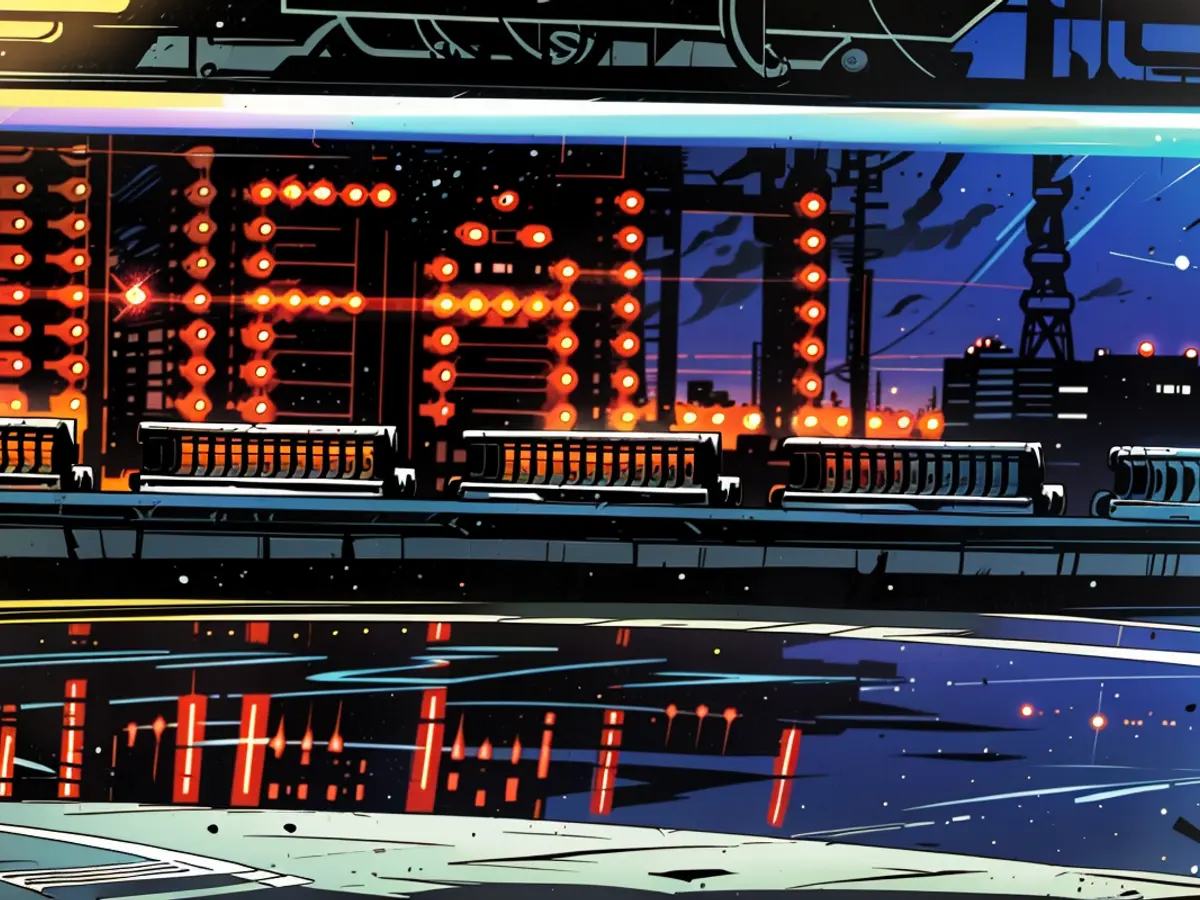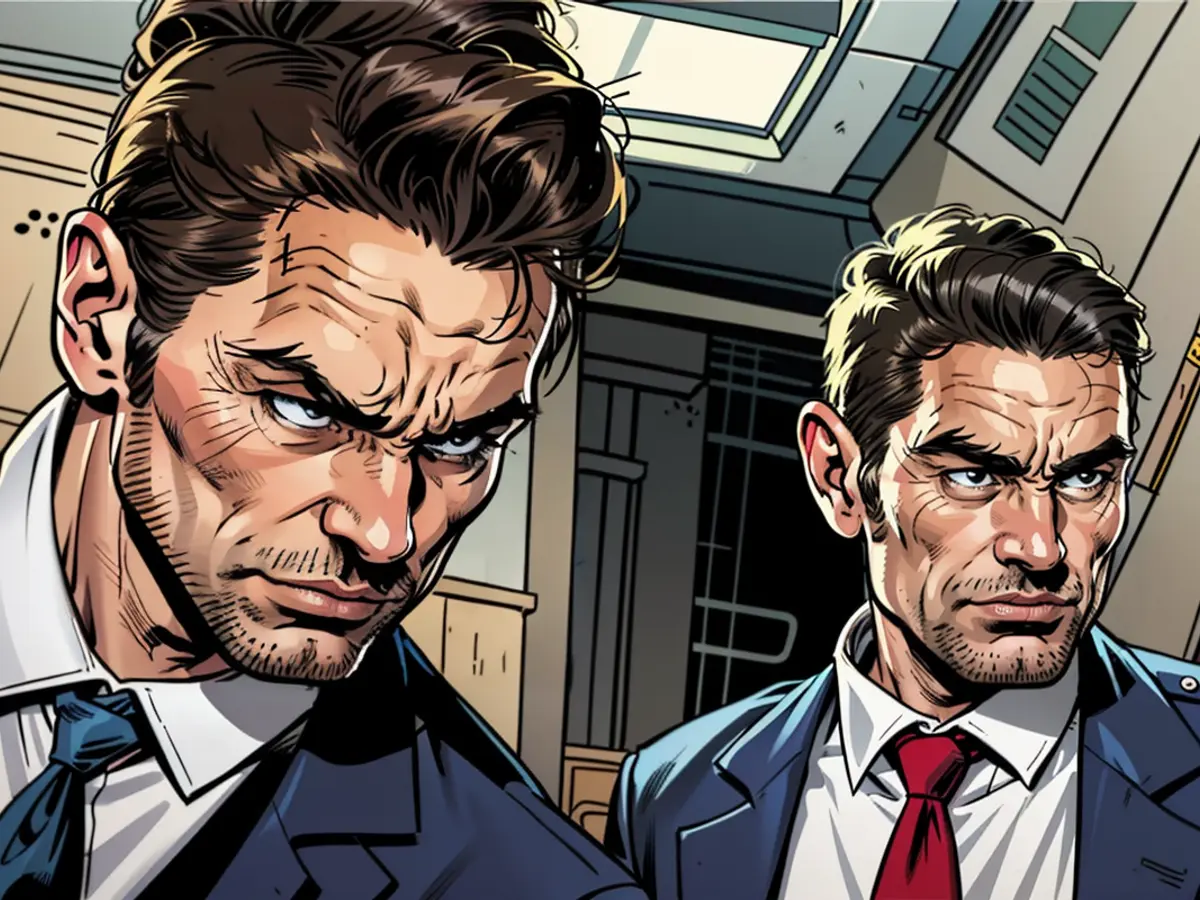Before Ukraine decision: Orban demands billions more from the EU
Orban said on Hungarian radio that this was "a great opportunity for Hungary to make it clear that it should get what it deserves. Not half, not a quarter, but everything."
Immediately before the summit, the EU Commission had already released a good ten billion euros for Orban because the country had enacted a judicial reform. Further billions are on hold due to violations of the rights of sexual minorities or asylum law, for example.
Belgium's head of government Alexander De Croo said that "no progress" had yet been made in Hungary in these areas. "The freeze can only be lifted if there is progress on these demands," emphasized the Belgian, whose country takes over the rotating EU Council presidency in January.
During the night, Orban vetoed further economic aid of 50 billion euros for Ukraine. He demanded "adequate preparations" for the decision. The EU wants to hold a special summit on this at the beginning of 2024, but a date has not yet been set.
Ireland's head of government Leo Varadkar expressed his "disappointment". Sharp criticism also came from the European Parliament: "Viktor Orban is the most corrupt head of government we have," said Parliament Vice-President Katarina Barley (SPD) to Rundfunk Berlin-Brandenburg.
Before the summit, Orban had called for a strategic debate on what the EU was actually trying to achieve with the Ukraine aid. According to diplomats, many countries see this as a maneuver to further delay the decision.
The EU Commission had already proposed the 50 billion in June in order to save the country from economic collapse. Of this amount, 17 billion euros are to flow as fresh money and a further 33 billion euros in the form of loans.
An increase in the multi-year EU budget framework until 2027 is planned for this, which is also blocked due to Orban's veto. In this context, further funds are being discussed for areas such as migration and defense; most recently, a good 20 billion euros were discussed for the next four years. At the summit, German Chancellor Olaf Scholz (SPD) advocated covering the needs by redistributing funds that have already been pledged, if possible.
The second day of the summit was to focus on the Middle East war, migration and the fight against anti-Semitism. The member states Spain, Belgium, Ireland and Malta, which are considered to be close to the Palestinians, are calling for tougher language against Israel's actions in the Gaza Strip.
"The killing of innocent civilians must finally stop now", said Belgium's head of government De Croo. Varadkar said that the EU must "really put pressure on Israel and say that its failure to grant the Palestinians their own state will affect relations between Israel and the EU in the future". This puts pressure on Israel-friendly countries such as Germany and Austria.
On Thursday, the heads of state and government cleared the way for accession negotiations with Ukraine and neighboring Moldova. Although Hungary's head of government Viktor Orban sharply criticized this, he refrained from vetoing it - in contrast to the aid money.
Chancellor Scholz played a decisive role in the breakthrough, according to diplomatic circles. He suggested that Orban leave the room, and the opening of accession negotiations was agreed in the meantime.
Orban subsequently distanced himself from the summit agreement. In a video published on Facebook, he spoke of a "completely senseless, irrational and wrong decision". He had abstained.
Nevertheless, Ukrainian President Volodymyr Selensky spoke of a "victory for Ukraine" and "for the whole of Europe" due to the promised accession negotiations. Scholz called the decision "a strong sign of support
Read also:
- This will change in December
- German activists speak out in Dubai on suffering in Israel and the Gaza Strip
- Despite UN vote: fighting between Israel and Hamas in the Gaza Strip continues
- Nuclear fusion - hype or solution to energy problems?
Source: www.stern.de
